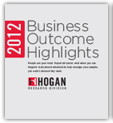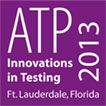Assessments are powerful, business-critical tools that predict and monitor employee performance and multiple assessments are administered based on the different needs within the organization. Over the course of a typical year, some employees might be assessed and reassessed over and over again, causing frustration and assessment burnout for already busy employees. When organizations use multiple assessments that have no or limited correlation to each other, it also creates a glut of data that forms its very own black hole, sucking in all the information – full of redundancies – including the vital insights.
Since the variance between these assessment tools is often slight, organizations risk capturing virtually the same data in different systems that are further limiting because they are unable to talk to each other. Organization-wide, collected data filters into this black hole ensuring it is nearly impossible to compare results or pull broad-spectrum reports. As more assessments are ordered to suit emerging needs, employees and human resources professionals become frustrated. To avoid burnout and black hole syndrome, finding an alternative is imperative.
Research indicates that the solution may be easier than you realize: employ a comprehensive suite of assessment tools. Here’s how:
One Suite, Multiple Options Having a comprehensive suite allows the organization to assess employees once, using the same questions for everyone. With this concise data in hand, the organization can run multiple reports on everything from detecting leadership potential to recognizing levels of accident proneness.
Creating Consistency Collecting the same information about all employees provides a broad, deep understanding of the entire workforce.
Implementing Strategy This starts by identifying the organization’s needs (PDF) including the biggest pain point; once needs are determined a comprehensive assessment suite can be rolled out. We recommend holding a “conversion” training to help employees understand the new approach and its associated value for improving the HR lifecycle and employee experience.
With a comprehensive assessments suite in place, organizations will see burnout diminish while the black hole gives way to a viable bank of employee data. To find out more about using a comprehensive suite of assessments, download our latest eBook, Why Personality?
 When you use one of Hogan’s assessment solutions, you can trust that it works. Hogan conducted 40 ROI studies in 2011 and 2012 for clients ranging from retail to manufacturing. Year after year, we provide empirical evidence, from increased store sales to improved organizational safety, of how our assesments impact clients’ bottom lines. Regardless of industry sector or job type, Hogan’s assessments provide a significant, long-term return on investment.
When you use one of Hogan’s assessment solutions, you can trust that it works. Hogan conducted 40 ROI studies in 2011 and 2012 for clients ranging from retail to manufacturing. Year after year, we provide empirical evidence, from increased store sales to improved organizational safety, of how our assesments impact clients’ bottom lines. Regardless of industry sector or job type, Hogan’s assessments provide a significant, long-term return on investment.

 When you use one of Hogan’s assessment solutions, you can trust that it works. Hogan conducted 40 ROI studies in 2011 and 2012 for clients ranging from retail to manufacturing. Year after year, we provide empirical evidence, from increased store sales to improved organizational safety, of how our assesments impact clients’ bottom lines. Regardless of industry sector or job type, Hogan’s assessments provide a significant, long-term return on investment.
When you use one of Hogan’s assessment solutions, you can trust that it works. Hogan conducted 40 ROI studies in 2011 and 2012 for clients ranging from retail to manufacturing. Year after year, we provide empirical evidence, from increased store sales to improved organizational safety, of how our assesments impact clients’ bottom lines. Regardless of industry sector or job type, Hogan’s assessments provide a significant, long-term return on investment. Ryan Ross and Jocelyn Hays will present at the
Ryan Ross and Jocelyn Hays will present at the  Ryan Ross and Jocelyn Hays will present at the
Ryan Ross and Jocelyn Hays will present at the 

